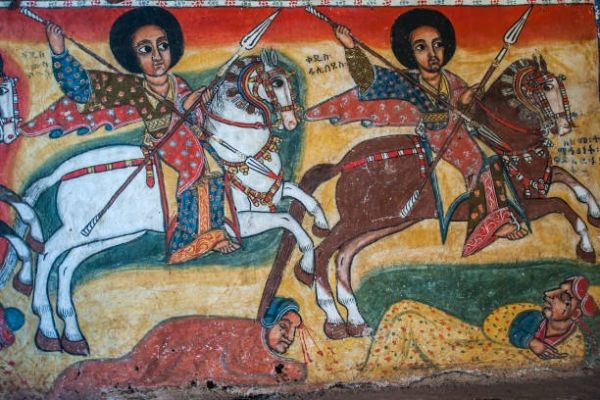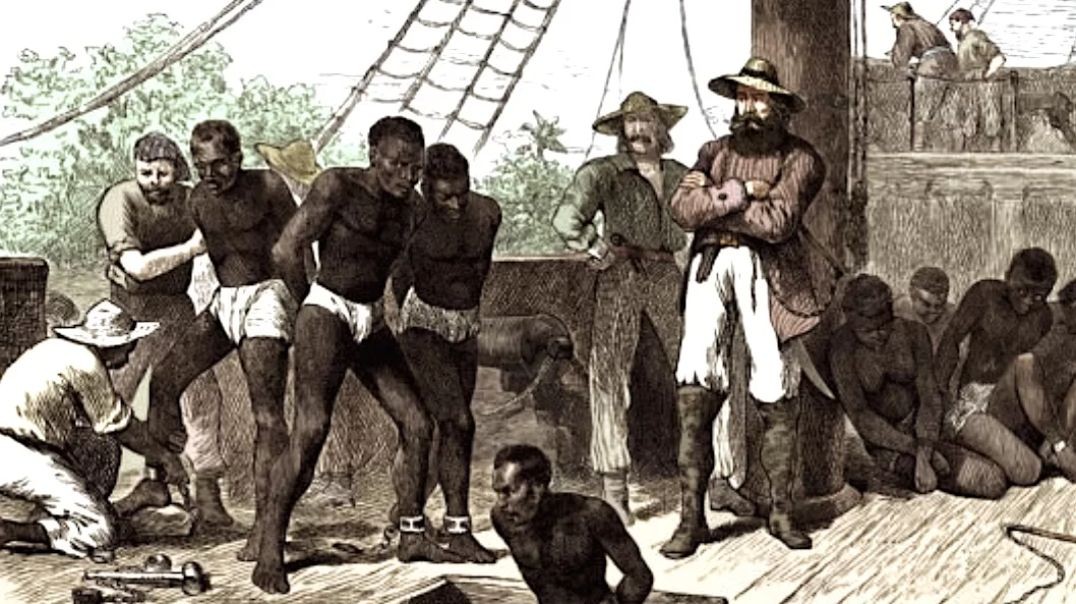Emperor Sarwe Iyasus of Ethiopia: A Comprehensive History
Emperor Sarwe Iyasus, a largely forgotten yet significant figure in Ethiopian history, reigned during a period marked by social transformation, external threats, and internal reforms. He is remembered for his efforts to strengthen the Ethiopian state and for his nuanced policies that aimed to reconcile diverse ethnic and religious groups within the empire. This comprehensive exploration of Emperor Sarwe Iyasus aims to bring to light his achievements, challenges, and legacy.
Early Life and Ascendancy
Sarwe Iyasus was born in the late 17th century, in an era when Ethiopia faced both internal divisions and external pressures. As a member of the Solomonic dynasty, Sarwe Iyasus grew up with the knowledge that his family traced its lineage back to King Solomon and the Queen of Sheba, a claim that endowed him with both legitimacy and a sense of divine mission. His early education included religious studies, statecraft, and military training, which were crucial for any potential ruler of Ethiopia.
Sarwe Iyasus ascended to the throne in 1721, following the death of his predecessor, Emperor Yostos. His ascension was not without challenges; rival factions within the nobility and threats from local warlords made the early years of his reign particularly tumultuous. However, Sarwe Iyasus demonstrated remarkable political acumen, using a combination of diplomacy and military might to consolidate his power and stabilize the empire.
Political and Administrative Reforms
One of Sarwe Iyasus's most notable achievements was his series of administrative reforms aimed at centralizing authority and reducing the power of regional nobles. Ethiopia at the time was a patchwork of semi-autonomous regions, each ruled by powerful lords who often acted independently of the central government. Sarwe Iyasus sought to bring these regions under tighter control, implementing a system of governors directly appointed by the emperor.
These reforms were met with resistance from the nobility, who were reluctant to relinquish their autonomy. To counter this resistance, Sarwe Iyasus employed a policy of divide and rule, pitting rival noble families against each other to weaken their collective influence. He also sought to professionalize the military, creating a standing army loyal to the crown rather than to individual lords. This move not only strengthened his position but also provided a means to enforce his policies across the empire.
Religious Policies and Relations with the Church
Religion played a central role in Ethiopian society, and Sarwe Iyasus understood the importance of maintaining a strong relationship with the Ethiopian Orthodox Church. He was a devout Christian and worked closely with church leaders to promote religious unity and stability. During his reign, he supported the construction of new churches and monasteries, and he took steps to ensure that church lands were protected from encroachment by secular authorities.
Sarwe Iyasus also sought to address the tensions between the Orthodox Church and the various Muslim and Jewish communities within Ethiopia. He adopted a policy of relative tolerance, allowing these communities to practice their faiths without interference, as long as they acknowledged the authority of the emperor. This approach helped to maintain peace in a religiously diverse empire and fostered a sense of coexistence among different faiths.
Foreign Relations and Military Campaigns
The reign of Sarwe Iyasus was marked by a series of military campaigns aimed at defending Ethiopia from external threats and expanding its influence. One of his most significant challenges came from the Oromo, who had been migrating into the Ethiopian highlands for several decades. Sarwe Iyasus launched several campaigns to push back Oromo incursions and secure the borders of his empire. These campaigns were only partially successful, as the Oromo were skilled fighters and adept at guerrilla warfare. Nevertheless, Sarwe Iyasus managed to establish a more stable frontier, which allowed for greater internal development.
In addition to dealing with the Oromo, Sarwe Iyasus sought to strengthen Ethiopia's position in the region by establishing diplomatic ties with neighboring kingdoms. He sent emissaries to the Kingdom of Sennar, the Sultanate of Adal, and even sought to reestablish contact with European powers, particularly Portugal, which had previously provided military assistance to Ethiopia in the 16th century. These diplomatic efforts were aimed at securing alliances and gaining access to new technologies and trade opportunities.
Cultural Contributions and Patronage of the Arts
Sarwe Iyasus was not only a warrior and a statesman but also a patron of the arts and culture. He encouraged the production of religious manuscripts, commissioned elaborate church paintings, and supported the work of poets and musicians. The cultural renaissance that took place during his reign contributed to the flourishing of Ethiopian literature and art, which became important symbols of national identity.
One of his most notable cultural achievements was the promotion of the Ge'ez language, the liturgical language of the Ethiopian Orthodox Church. Sarwe Iyasus encouraged the use of Ge'ez in administrative documents and literary works, helping to preserve this ancient language and reinforce its role in Ethiopian society. His support for the arts and culture not only enriched the empire but also helped to legitimize his rule by connecting him to the broader cultural and spiritual heritage of Ethiopia.
Challenges and Opposition
Despite his many achievements, Sarwe Iyasus faced significant challenges during his reign. The nobility, though weakened by his reforms, continued to pose a threat to his authority. Rebellions by disaffected lords were a constant concern, and Sarwe Iyasus had to spend much of his reign quelling uprisings and ensuring the loyalty of his governors.
Another major challenge came from the Oromo, whose continued migrations into Ethiopian territory threatened the stability of the empire. While Sarwe Iyasus was able to achieve some military successes, he was ultimately unable to fully integrate the Oromo into the Ethiopian state. This failure would have long-term consequences for the unity of the empire, as the Oromo would continue to play a significant role in Ethiopian politics in the centuries to come.
Legacy and Impact
Emperor Sarwe Iyasus left a mixed legacy. On one hand, he was a reformer who sought to centralize authority, strengthen the military, and promote cultural and religious unity. His efforts laid the groundwork for future emperors to build a more cohesive Ethiopian state. On the other hand, his reign was marked by constant warfare and resistance from the nobility, which limited his ability to achieve lasting stability.
Sarwe Iyasus's emphasis on centralization and his efforts to professionalize the military were significant steps toward creating a more unified Ethiopian state. His policies would influence future emperors, such as Tewodros II and Menelik II, who would continue the process of centralization and modernization. Additionally, his support for the arts and culture helped to preserve and promote Ethiopia's unique heritage, which remains a source of pride for the country to this day.
Conclusion
Emperor Sarwe Iyasus was a complex and dynamic ruler who navigated the challenges of his time with determination and vision. His reign was marked by efforts to centralize power, promote cultural and religious unity, and defend the empire from external threats. While he faced significant obstacles, including resistance from the nobility and the ongoing threat of Oromo incursions, his legacy as a reformer and patron of the arts endures.
Sarwe Iyasus's contributions to Ethiopian history are an important reminder of the challenges faced by leaders in maintaining unity and stability in a diverse and often divided society. His reign set the stage for future developments in Ethiopian statehood and left an indelible mark on the cultural and political landscape of the country. By understanding the life and reign of Emperor Sarwe Iyasus, we gain a deeper appreciation for the resilience and complexity of Ethiopian history and the enduring legacy of its leaders.








